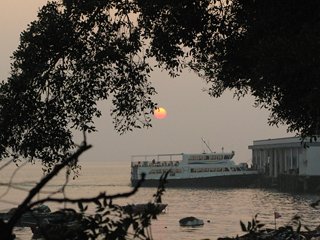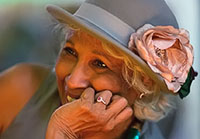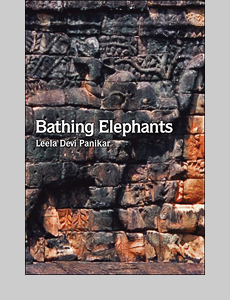Slumdog Millionaire
Film: Slumdog Millionaire
Director: Danny Boyle
Co-director (India): Loveleen Tandan
Screenplay: Simon Beaufoy
Novel: Vikas Swarup
Music: A. R. Rahaman
Child actors: vivacious and natural and endearing
A tragi-comedy of three orphaned children, Salim, (Madhur Mittal), Jamal, (Dev Patel) and Latika (Freida Pinto), growing up in the slums of Mumbai. A tale of human capacity to seek every measure of survival through hardship and endurance. The older brother Salim, driven by desire for power and money, chooses the wrong path. Jamal seeks love, his destiny, his Latika and it is love that endures.
The film begins with a teenage Jamal, a tea-boy – a chai-walla, from the slums, answering questions on a TV programme: Indian version of Who Wants to be a Millionaire. He is on a winning streak. Is he a Cheat, is he Lucky, is he a Genius or is it Destiny. Jamal thinks it’s destiny but the host assumes Jamal is a cheat, and before the end of the game the man gets police to kidnap him. He is taken into custody and questioned. When Jamal has no satisfactory answer for the authorities he is tortured. Finally the officer sits him down and questions him again.
Jamal relates how he came about the answers to questions in the quiz. It unfolds the answer to each question came from his life experience and the story is told in flashes of question in the studio and flash-back of his life in the slums.
The street-smart innocence of the children is touching and vibrant. It is an incredibly inspiring tale of survival, children coping and dealing with unscrupulous adults many of whom were slum children themselves.
Scenes of torture and beatings, of violence, of setting the Muslim quarter on fire, of blinding a child are not graphic but drawn with subtlety and quite clearly portray the cruelty and evil of human beings.
The film is very funny and vivacious in spite of misery and filth. It is also awash with energy, colour and fast paced music.
In one scene the two teenage brothers are on a high floor of an unfinished building and Salim points out to his brother where their shantytown home once was, and now in its place is a complex of multi-storey high-rise towers.
The film is also a small and touching glimpse of a large and complicated real India treated with sensibility. A glimpse of an incredible Mumbai, an Indian city of today.
Before the start of the Oscars Dev Patel, the teenage Jamal, said to an interviewer: “It is a small film with a big heart.” But it has evolved into a big film with a big heart.
P.S.
Kowloon Walled City
The start of the film panning through the slums and shots of milling humans toiling reminded me of Kowloon Walled City of Hong Kong before it was torn down in 1993. My scary trip into this vast tangle of energy where very human was engaged in doing something to earn a living, and miles of snarled electric cables and dark dank lanes, and narrow alley sewers and large rats was not only eye-opening but left me quite enlightened and breathless.










